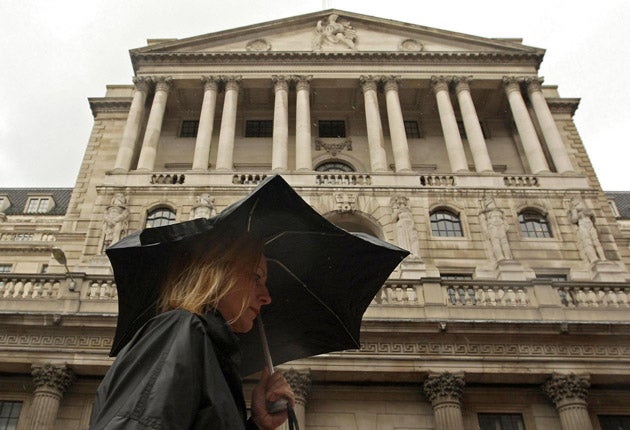ISA interest rates on the up as banks vie for your savings
Julian Knight looks at the best offers available as the deadline looms

Your support helps us to tell the story
From reproductive rights to climate change to Big Tech, The Independent is on the ground when the story is developing. Whether it's investigating the financials of Elon Musk's pro-Trump PAC or producing our latest documentary, 'The A Word', which shines a light on the American women fighting for reproductive rights, we know how important it is to parse out the facts from the messaging.
At such a critical moment in US history, we need reporters on the ground. Your donation allows us to keep sending journalists to speak to both sides of the story.
The Independent is trusted by Americans across the entire political spectrum. And unlike many other quality news outlets, we choose not to lock Americans out of our reporting and analysis with paywalls. We believe quality journalism should be available to everyone, paid for by those who can afford it.
Your support makes all the difference.After a slow start, the competition for your savings in advance of the deadline for investment in a cash Individual Savings Account this year is starting to hot up. Each tax year, Britons can put up to £5,100 in a cash ISA with all interest earned being free of tax. The deadline for this year ISA is a little over three weeks away.
A month ago, the best-buy instant-access cash ISA was paying just 2.9 per cent; now, it's 3.35 per cent from the AA. Likewise, a raft of fixed-term deals has come on to the market, including a four-year fixed rate ISA from Cheshire Building Society, paying 4.4 per cent, and a five-year fix from Skipton Building Society paying 5 per cent, nearly identical to the current rate of inflation.
"The variable rate ISA market has been competitive, but three of the top four accounts don't accept transfers in," warns Michelle Slade from financial information site Moneyfacts. "Barclays and Santander have battled it out to be top of the best buys, but have been overtaken last week by the AA. The fixed-rate ISA market has also seen a lot of movement, particularly for medium to long term fixed-rate ISAs. At present, the average ISA rate is at its highest level for the whole two-year period of base rate being at 0.5 per cent."
But with Bank of England interest rates almost certain to rise over the next few months and many City insiders predicting rates rising from 0.5 per cent to 1.5 or 2 per cent within the year, what seems like a good deal now may not prove to be the case later on.
"I'd be reluctant to fix for longer than two years .... The exception to this may be for those people looking to maximise their monthly interest to supplement their income," says Andrew Hagger, spokesman for comparison site Moneynet.
Kevin Mountford, of comparison service Moneysupermarket.com, has a different interpretation: "As far as fixed versus variable rates are concerned, you need to decide if you can lock your money away. If you can, then the best value is around five-year products ... and you can transfer-in your existing ISA portfolio. For shorter-term options the value isn't as great and I'd stick with the easy-access offers and look again in another year."
Loyalty is rewarded by two providers in the ISA market – the Halifax and Santander, who offer a 0.2 per cent bonus to current-account customers who also take out an ISA. With the bonus the accounts pay 3.2 per cent and 3.5 respectively. But more standard account bonuses can be a double-edged sword: "Once the bonus rate expires from the latest deals the new Santander Flexible ISA rate will drop by a massive 2.65 per cent, the AA by 1.65 per cent and the new Barclays deal by 1 per cent, so it's vital that you make a note in your diary or iPhone to switch your balance after the year is up," Mr Hagger warns.
And the run up to ISA deadline isn't just about where to put new savings, it should be about reviewing existing arrangements. "Just because the rate was a best buy when you took it out, doesn't mean you'll still be getting a good deal. In fact some old accounts are paying as little as 0.1 per cent."
And if you are transferring money between cash ISA providers be aware that new FSDA rules mean the transfer should be complete within 15 days. Halifax and Nationwide have, however, both promised to pay interest from the day the account opening application is received.
Join our commenting forum
Join thought-provoking conversations, follow other Independent readers and see their replies
Comments